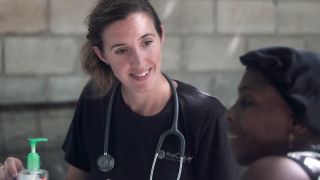Relationships
Should I Break Up With My Cancer Doctor?
Four questions cancer survivors should consider before moving on.
Updated July 25, 2023 Reviewed by Michelle Quirk
Key points
- Your relationship with your doctor may change after cancer treatment.
- You should always feel physically safe and that you can voice your concerns.
- Defining what you need from your doctor can be important in maintaining this relationship.
This week, I initiated a professional breakup. The expertise I expected was not what I was receiving.
What made it harder was that this person was a kind, professional, and knowledgeable individual who I knew was trying to help. But what I realized after a few months of working together was that the service I needed was not what this person provided; I had hired the wrong help. It was not fun to write that email, but I now have a clearer picture of what I need so I can find the right person for the job.

As a cancer survivor, have you ever wondered when it might be time to get another doctor? As the crush of intense treatment fades and the pace of your care slows, you may find yourself wondering if this person who helped save your life is the best person to care for you now. Let me give you four things to consider if you find yourself asking this question.
Do You Feel Safe?
In my case, this was a virtual relationship, so safety was not an issue. As a survivor, however, the power imbalance between a vulnerable patient and a medical provider is huge. If you ever witness or experience inappropriate physical touch that makes you want to run home and tell your best friend, you should find another doctor quickly. In my experience, this is rare, but it does happen, and it is unacceptable. By this point in your treatment, hopefully, you know this person well, but, even so, pay attention to red flags and leave if you see them.
Do You Feel Heard?
Much of cancer survivorship is dealing with uncertainty. Part of that is the heterogeneous nature of the disease and part is the lack of evidence-based guidelines for survivorship care. As a result, many times your doctor may not know the answer to why something is happening or whether a treatment exists that will help.
This doesn’t mean they don’t care, and it doesn’t mean your feelings are not important. In follow-up, the doctor is mostly focused on signs of your cancer coming back. They may not have an answer on why you feel the way you do, but they should also be able to tell you it’s not cancer returning. Not having an answer is different than not hearing your questions. Your doctor should always listen to your concerns and empathize with your feelings.

What Are Your Core Expectations of This Relationship?
During treatment, your doctor may have had all the answers—what treatment is next, what medicines to take, when to intervene on a test result. This can change in survivorship when you are “done” with cancer treatment and transition back to the “normal” world.
This change can be jarring, particularly as your doctor moves from directing your care to a more passive role. Other health concerns that have been on the back burner during treatment such as other screening tests, immunizations, and care of chronic medical conditions must be addressed by your primary care physician, for example. It can help to figure out what you need from your doctor and consider communicating that at your next visit. Do you need a truth-teller? A cheerleader? A quarterback? Or just someone to listen?
Is This Something Only Your Doctor Can Do?
As a cancer survivor, you have been through an incredible experience that changes many people in fundamental ways. What worked for you in a doctor-patient relationship prior to a cancer diagnosis may not work for you now. Write down what you need to get through the next few weeks and figure out who in your life can help. It is likely that most of your needs can be met by your friends, family, and community, not by your doctor.
Many relationships change as you finish cancer treatment and move into survivorship including the one with your doctor. You should absolutely feel physically safe and that your doctor listens to you, even if she doesn’t have all the answers. Determining what you need from your doctor as well as identifying other resources will help you focus on the most important person in this relationship: you.


